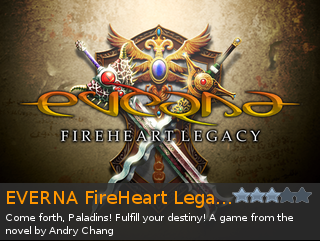The Book of the
Forsaken
(Book One of “The
Game” Series)
Author: Yannis Karatsioris
Published © 2012 by Yannis Karatsioris
Website: www.yanniskarats.com
Cover artwork: © Yannis Karatsioris
303 pages, paperback
A sarcastic storyteller traps three characters in his web in
order to get hold of a special book.
Daniel, Cassidy and Igor are three unique individuals,
considered outcasts for different reasons. They are about to meet and stick
together, as coincidences and forced situations lead them to a journey all
around Europe.
As everyone is after the Book of the Forsaken, the coming
Game is about to take place on the dark side of the moon.
But there is a cost to that knowledge. Let alone to the wish
to partake.
It has begun…
Winner on HarperCollins UK hosted competition on
Authonomy.com
The Game Begins! The
Wayfarer’s Report
Review by Andry Chang (@andrychang)
When I first read this synopsis on the back cover, the first
thing that came into my mind was, “What’s so special about this ‘Book of the
Forsaken’? In reference of the dark, cloaked figure coming through a cemetery
gate-like arch, I guess it would be like another cursed book loaded with
forbidden, dark knowledge of something with immense, godlike power.
Well, most people will probably stop right there.
However, the thing that triggered my fascination on Yannis’
work for the first time was the story teller’s sarcastic, clever quotes. So I
went to figure out why and when he said those things, and their connection and
significance whatsoever with the storyline.
It’s intriguing how Yannis came up with these ideas and
words. I didn’t bother googling for originality, because the sarcasm actually
fits in the narration, as though Yannis himself is involved in the story as the
mysterious storyteller and narrator.
The storyteller’s presence is extremely crucial here, more
so in order to make the “coincidences” and “forced situations” that pitted the
“puppets”, Daniel, Cassidy and Igor together believable as part of the
storyteller’s “game plan”. Putting the chess pieces in place to play the
variants, in other words.
So, we’re playing chess here. The storyteller is the player,
and the “puppets” and other characters in the story are the chess pieces. The
Book of the Forsaken is the White Queen, while the Forsaken, no spoiler
intended are the black chess pieces.
Now, here comes the exciting part. The “puppets” haven’t
chosen whether they’re white or black chess pieces yet. They’re pretty much
“grey”, like our mysterious storyteller here.
As for the “forsaken”, when he “revealed” his true kind, the
reader was presented with an option, whether to hate or even sympathize with
him. So I, as the reader took part in the game too, whether as a supporter or
in the audience, putting my chips on the side I thought would eventually win.
Viewing the “puppets”, Yannis seems to have successfully
“humanized” them to the very end of this book. Although they have the similar
characteristics as “messed up” (in their own way, of course), each of them has
unique, even extreme personalities, attitudes and so on. The aggressive Robert
Cassidy, the shy yet obsessive Daniel Maladie and the enigmatic Igor Rubinstein
represent the extremities of humanity. Whether it’s inferior, violent or
superior. The three of them form a very unlikely – yet effective team – so far.
Still I, the Wayfarer, predict that the three of them will
take sides and become enemies, and even end up killing each other. Cassidy and
Igor will take the extremes, while Daniel will be neutral. Also, new characters
will add up to the roster, making the game like “the more, the merrier”. So, on
whom will I bet my chips? Well, I better keep that to myself – all other
readers will do the same, right?
Well, to put some other things on note, the Occident Express
in Chapter Five is a really fascinating train, and I think it’s more magically
complex than Hogwarts Express and even the Polar Express. All in all, it brings
about the magical climax of this urban fantasy story.
Also take note of some other characters that are also
somewhat involved in the Game, as “everyone is after the Book of the Forsaken”.
Alexandru, Dragomir, Herbert Merden… Alexandru, most of all, might be suspected
as the “fourth player”. But who is the real enemy here? The Forsaken? The
“other side”? Or maybe, the one who caused both of them to clash? The one who
concocted this bloody Game because he thought it’s better than a war?
There must be another way. A much better way that outweighs
the urge to win the game. Will there be an out-of-the-box solution? Or a
situation like an Indonesian proverb, “Win as charcoal, lose as ash”?
Well, be wise to put our chips, matey.
And let the games begin!
Get a copy of this book and Yannis Karatsioris’ works in Amazon,
Kindle and
Website: www.yanniskarats.com













No comments:
Post a Comment